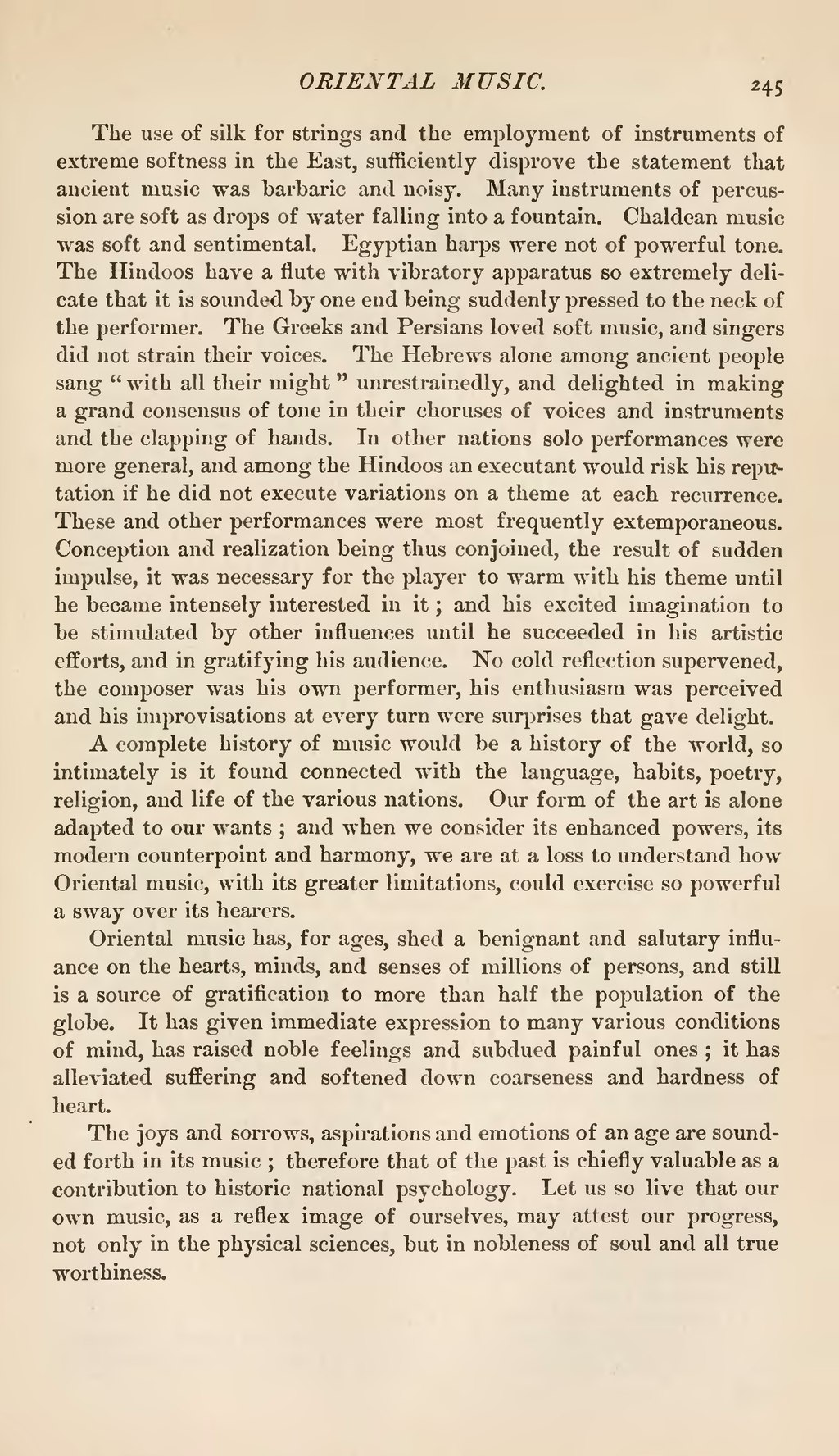The use of silk for strings and the employment of instruments of extreme softness in the East, sufficiently disprove the statement that ancient music was barbaric and noisy. Many instruments of percussion are soft as drops of water falling into a fountain. Chaldean music was soft and sentimental. Egyptian harps were not of powerful tone. The Hindoos have a flute with vibratory apparatus so extremely delicate that it is sounded by one end being suddenly pressed to the neck of the performer. The Greeks and Persians loved soft music, and singers did not strain their voices. The Hebrews alone among ancient people sang "with all their might" unrestrainedly, and delighted in making a grand consensus of tone in their choruses of voices and instruments and the clapping of hands. In other nations solo performances were more general, and among the Hindoos an executant would risk his reputation if he did not execute variations on a theme at each recurrence. These and other performances were most frequently extemporaneous. Conception and realization being thus conjoined, the result of sudden impulse, it was necessary for the player to warm with his theme until he became intensely interested in it; and his excited imagination to be stimulated by other influences until he succeeded in his artistic efforts, and in gratifying his audience. No cold reflection supervened, the composer was his own performer, his enthusiasm was perceived and his improvisations at every turn were surprises that gave delight.
A complete history of music would be a history of the world, so intimately is it found connected with the language, habits, poetry, religion, and life of the various nations. Our form of the art is alone adapted to our wants; and when we consider its enhanced powers, its modern counterpoint and harmony, we are at a loss to understand how Oriental music, with its greater limitations, could exercise so powerful a sway over its hearers.
Oriental music has, for ages, shed a benignant and salutary influance on the hearts, minds, and senses of millions of persons, and still is a source of gratification to more than half the population of the globe. It has given immediate expression to many various conditions of mind, has raised noble feelings and subdued painful ones; it has alleviated suffering and softened down coarseness and hardness of heart.
The joys and sorrows, aspirations and emotions of an age are sounded forth in its music; therefore that of the past is chiefly valuable as a contribution to historic national psychology. Let us so live that our own music, as a reflex image of ourselves, may attest our progress, not only in the physical sciences, but in nobleness of soul and all true worthiness.

